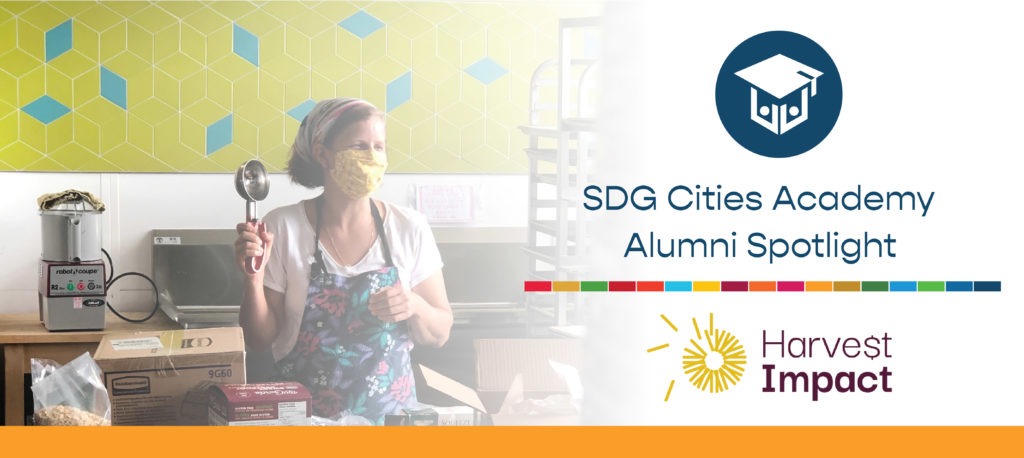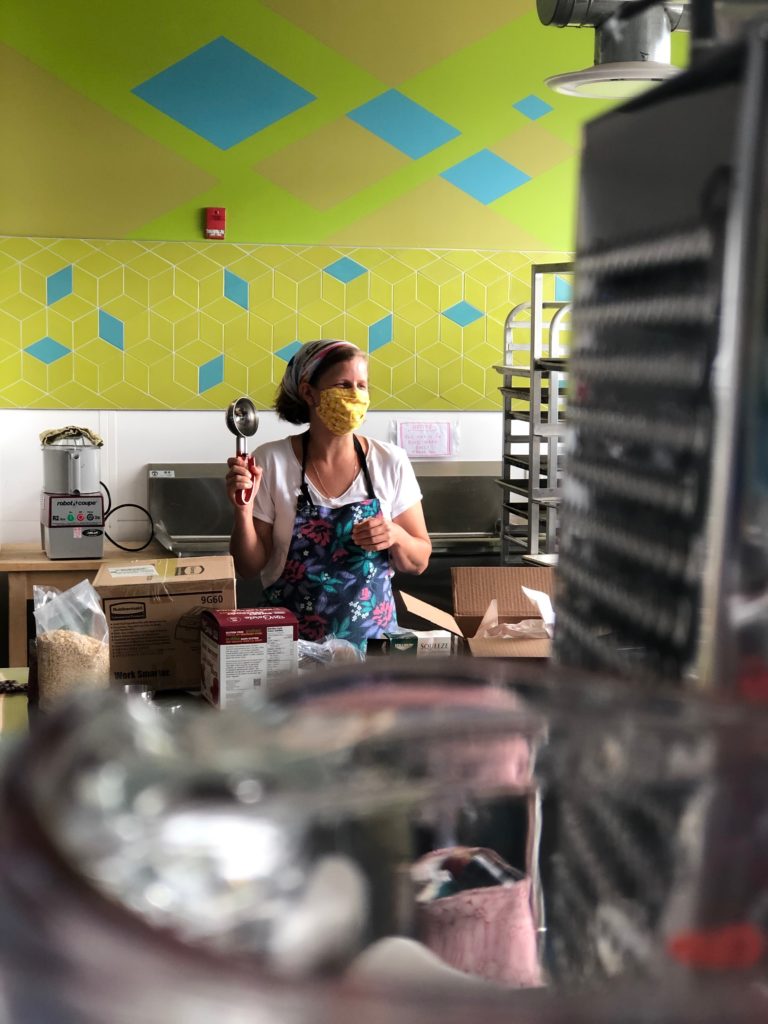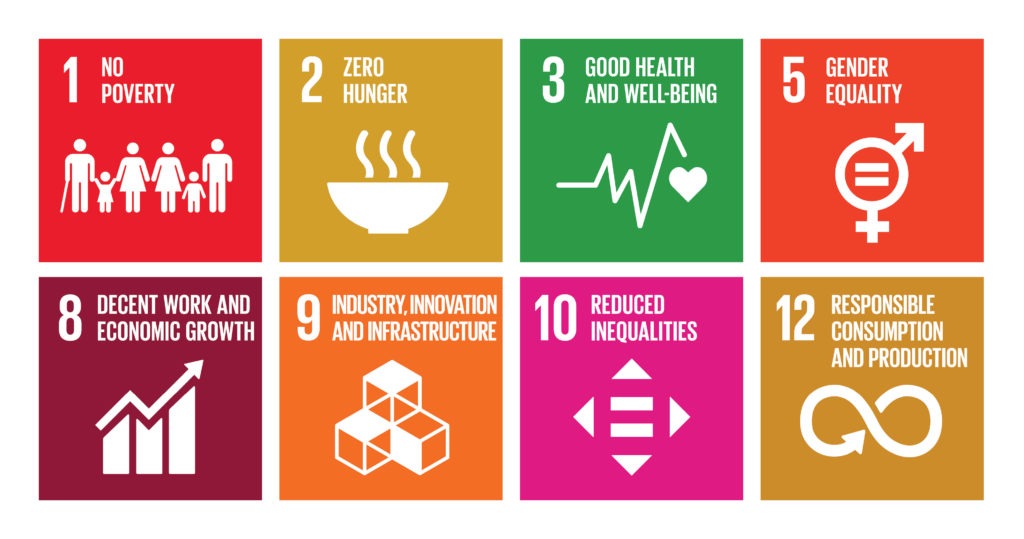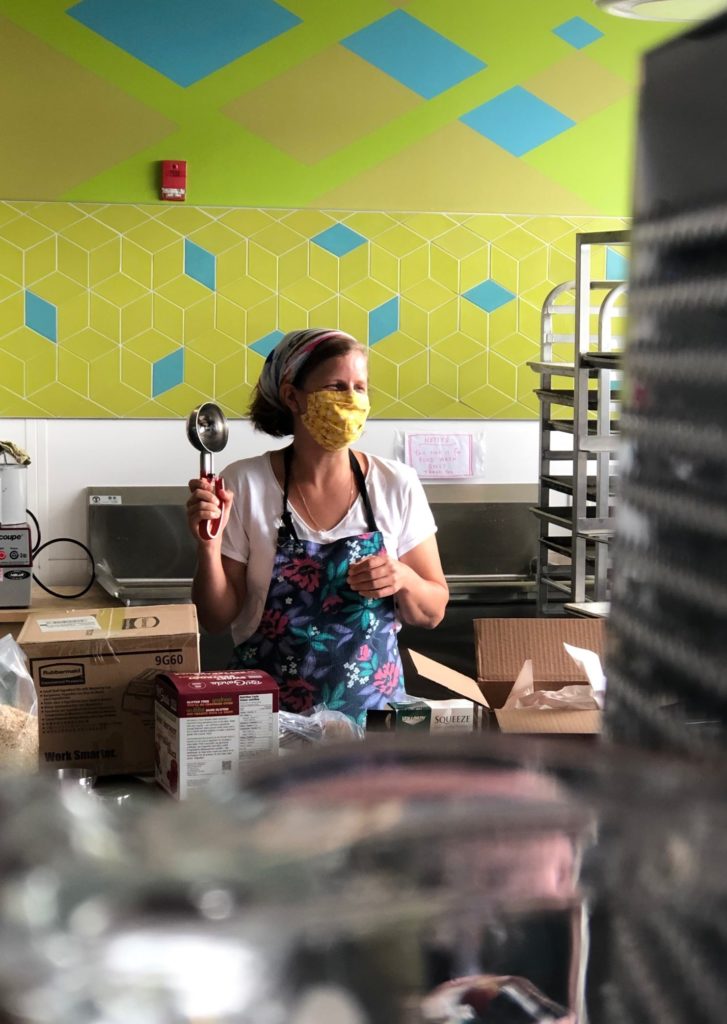Harvest Impact: Investing in Community and the Circular Economy in Guelph-Wellington

The SDG Cities Academy is a supported, peer-to-peer training opportunity developed and delivered by SDG Cities. The course offered organizations, businesses and individuals a chance to deepen their knowledge about the SDGs and learn how to apply the principles and practices of the framework at the local level. As part of the training Academy participants explore alignment of their work with the SDG framework and dig into their local impact.
Harvest Impact is a project that was originally seeded by Our Food Future in 2019 as a result of Guelph-Wellington’s Smart Cities Challenge successful submission. Harvest Impact builds upon 10C’s social finance journey, a financing model that enabled the 10C Shared Space building at 42 Carden Street to come to life.
Harvest Impact, along with 10C’s other social finance efforts demonstrate the opportunities, innovation and future that are possible when smart communities invest in themselves.
The core idea of Harvest Impact is a social impact fund that supports community-led projects and social enterprises creating economic opportunities, catalyzing innovation, promoting the circular economy and building an equitable future.
Harvest Impact believes a sustainable economy – in which everyone can thrive – is possible by centring the voices, ideas and needs of individuals and groups who have historically and systematically been excluded from traditional financial models, including but not limited to: Indigenous Peoples, People of Colour, newcomers, women, persons with disabilities, LGBT2Q+ Canadians and those living at the intersections of these identities.
Harvest Impact seeks to work together to use social financing as a tool to create meaningful opportunities in the community and increase agency for all – socially, politically, and economically.

Through funding, social finance lending and mentorship, Harvest Impact supports a growing network of social purpose enterprises to identify and advance the SDGs. At the same time, the Harvest Impact team aims to grow their capacity to use the SDGs as an impact investment framework.

Harvest Impact supports a number of social enterprises (ie. The SEED, Nourish Kitchen), and impact measurement is an important part of strategic planning. By providing 10C staff and infrastructure, social financing, technical, business and social supports, we expect Harvest Impact will:
- Increase awareness in circular economy principles; (SDG 12)
- Companies will grow and thrive; (SDG 8)
- An increase in decent work; (SDG 5, 8 and 10)
- An increase in participants’ household income; (SDG 8)
- Improved access to nutritious local food; (SDG 1 and 3)
- Thriving localized food systems; (SDG 1 and 2)
- A significant decrease in food waste; (SDG 12)
- Increased local financial investments (SDG 8 and 9)
As a developing social finance model the Harvest Impact team has focused on building a solid foundation by clarifying their impact and using the SDGs to underpin their work. As a result, the SDGs have become a core piece of Harvest Impact’s Theory of Change. A Theory of Change is a guiding document that helps organizations and initiatives clarify and explain the impact they hope to make through their work.
By connecting their Theory of Change to clear, community level outcome tied to the SDGs Harvest Impact will be able to track and communicate their local impact and contribution to the SDGs.
Jess Barrie, Harvest Impact’s Community Investment and Engagement Lead, and SDG Cities Academy participant, describes how Harvest Impact is working to learn the shared language of the SDGs.
“There is still a lot of learning that needs to be done to help businesses, nonprofits as well as citizens understand our work – our decade of delivery for SDG’s is 2020 to 2030 and COVID-19 magnified what was existing beneath layers of systemic and structural racism, and lack of sustainable policy. Many individuals in the community are institutionally oppressed, meaning they seek support, but formal community programs offered don’t meet their needs.“
Within the social finance space, the SDG’s will create new funding opportunities for businesses. Already, governments, private and community foundations are aligning funding to SDG’s, and being able to measure and report on these goals as a way of demonstrating collective impact could help provide opportunities for additional funding in the future.
For Harvest Impact, the SDG’s are an important framework for sharing real life impact and stories. During the Academy some of the best learning came in our breakout discussions as other organizations shared stories of how the SDG’s have been used in their work. From embedding them in strategic plans and theories of change to practical applications for youth learning in classrooms. Harvest Impact plans to share stories and case studies on the enterprises we fund to demonstrate how the SDG’s can be used successfully as a way for others to learn.
Learning more about the SDGs and exploring program alignment can be hard work! The SDGs are a big ambitious framework for change which can be overwhelming at times. Learning alongside other committed organizations reinforced the importance of starting small, taking a few steps at a time, and tapping into a border community working for change.
Harvest Impact loans range from $2,500 to $50,000 at 0-8% interest. Visit our website to learn more and find out if you qualify. You can support Harvest Impact by becoming a donor, helping to connect businesses (including nonprofits and social enterprises) in the circular economy to the supports they need. This could be financing in the form of grants or loans, mentorship or connecting into the circular economy network . Dollars in this fund will be used to support multiple Harvest Impact and 10C-led community collaborations.
Follow Harvest Impact:
Twitter: @harvestimpactgw
Instagram @harvestimpactgw
Find Harvest Impact on Linkedin

